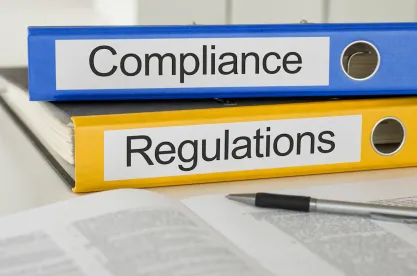The federal government acted swiftly in passing the Coronavirus Aid, Relief, and Economic Security Act (the “CARES Act”), including the Payroll Protection Program (“PPP”) component, to mitigate the financial impact of the COVID-19 pandemic. While the quick action by the government has put money quickly into the hands of small businesses, the government agency responsible for implementing this massive new program, the Small Business Administration (“SBA”), has had to play catch-up to issue guidance and rules to fully implement it. This Legal Update provides considerations related to the receipt of federal funds, which may be particularly useful to those borrowers new to receiving funds from the federal government.
In assessing compliance with the SBA’s rules and guidance, it is critical that borrowers understand that, while the loan process is facilitated by private lenders, the money they are receiving is from the government. This situation is likely new for many small businesses that have never previously received government funding. The receipt of government funding presents a unique set of compliance requirements and the potential for government enforcement if those compliance requirements are not met. Specifically, a knowingly false certification made while obtaining the funds or the misuse of funds supplied by the federal government can lead to either criminal liability or civil exposure to repay the funds plus penalties.
Potential Liability for False Certifications
The potential criminal or civil liability under the PPP is triggered by the “certifications” that a borrower must attest to at the time the loan is applied for and at the time information is submitted during the loan forgiveness process. Those certifications require a borrower to verify the truth of information that is being supplied and relied upon by the government in lending the money. The government’s primary means of ensuring that information being supplied by a private entity to the government is truthful is the False Claims Act (“FCA”)1. The FCA is a federal civil statute that prohibits an individual or entity from submitting a false claim for payment to the government. The statute has been used in a wide variety of contexts that suggests its potential use for funds inappropriately received under the PPP. For example, the government has prosecuted FCA cases against businesses who certified that they met the definition of a small business under SBA program rules for set-aside programs when the business did not, in fact, meet the requirements established by the SBA. The FCA requires not only the return of any wrongfully paid funds to the government, but also provides for treble damages and a significant per false claim penalty. The FCA is also unique because it allows a whistleblower to file a lawsuit on behalf of the government and share in any recovery with the government. Whistleblowers are most commonly current or former employees of the entity allegedly submitting the false claims. When the government receives a copy of a whistleblower lawsuit, it has a period of time to investigate the whistleblower’s allegations. Because whistleblowers are incentivized to bring these lawsuits by sharing in any recovery, these types of actions have become a powerful means of government enforcement. Finally, it should be noted that individuals who cause knowingly false certifications – and not just the company – can be liable under the FCA.
PPP Certifications
The PPP requires that individuals or entities that receive loans sign certifications that can trigger liability under the FCA. First, the applicant certifies that it is eligible to receive a loan under the programs rules and, specifically, that the entity employs no more than the greater of 500 employees or meets “the size standard in number of employees established by SBA in 13 C.F.R. 121.201 for the Applicant’s industry.” The SBA’s response to “Frequently Asked Questions” or “FAQs” on the PPP further indicate that an entity that meets the definition of a “small business concern” under the Small Business Act can qualify for a loan based on the revenue-based size standard or the SBA’s “alternative size standard.”2 In order to meet any of these size standards, the applicant must also consider the employees or revenue from any affiliates (as defined by the SBA) as set forth in the Interim Final Rule on Affiliation.3 To the extent that the SBA or an investigative agency determines that a borrower did not meet the size requirements for the PPP program and the borrower knowingly provided a false certification that it met those requirements, the entity could face potential liability under the FCA.
Second, the PPP applicant is required to certify that “current economic uncertainty makes this loan request necessary to support the ongoing operations of the Applicant” and that the funds will be used to “retain workers and maintain payroll or make mortgage interest payments, lease payments and utility payments.” Fortunately, the SBA has clarified the "necessity" standard to the borrower’s certification. Specifically, a borrower must make this certification “in good faith, taking into account their current business activity and their ability to access other sources of liquidity sufficient to support their ongoing operations in a manner that is not significantly detrimental to the business.”4 Moreover, SBA has established a safe harbor that a borrower is deemed to have the required necessity to fulfil the certification if the loan has an original principal amount of less than $2 million. Consistent with that safe harbor, the SBA has stated that it will not be reviewing the loan files of entities with loans smaller than $2 million5. Moreover, for those borrowers with loans greater than $2 million, if the SBA determines in the course of its review that the borrower lacked an adequate basis for certifying that the loan was necessary, SBA will only seek repayment of the balance and, if the loan is then repaid, the SBA will not pursue administrative enforcement or a referral to another entity for enforcement.
On the other hand, there is no safe harbor for the certification as to how the funds are actually spent. Among other things, the loan forgiveness application requires the borrower to certify that the amount for which forgiveness is requested was used to pay costs that are eligible for forgiveness and that the borrower “has accurately verified the payments for the eligible payroll and nonpayroll costs” for which the borrower is requesting forgiveness.6 It is likely that audits conducted by the SBA will encompass a review of the documentation submitted by recipients on how PPP funds were utilized.
What To Do If You Discover a Problem with Your PPP Certifications
If it is discovered that the borrower does not, in fact, need the funds or that there was an inaccuracy on the application for the funds, the borrower should consider repayment of the funds and possibly consider self-disclosing those issues to the government. Depending on the nature of the inaccuracy, a borrower may wish to consult counsel with experience in government enforcement matters. While this type of voluntary disclosure does not guarantee that there will not bring a subsequent government enforcement action, it significantly mitigates the risk by demonstrating a good faith attempt to comply with the rules of the program.
Finally, borrowers that have received PPP loans should take steps to ensure the accuracy of information submitted in applying for the loan or during the loan forgiveness process. Strong record keeping practices are essential when a business receives any sort of funding from the government and that is especially true in the current environment when the government has already signaled that it will be reviewing the distribution and use of these funds. Having accurate supporting documentation for the number of employees and the amount of expenses claimed on the application and the costs for which loan forgiveness is sought is critical. If there is ever any question about how funds were received or expended, contemporaneously maintained documentation of those expenses will likely be useful to resolve that question.
1 31 U.SC. § 3729, et seq.
2 Paycheck Protection Program Loans Frequently Asked Question No. 2 (as of May 13, 2020); https://www.sba.gov/document/
3 It is beyond the scope of this article to discuss fully the SBA’s affiliation rules.
4 Paycheck Protection Program Loans FAQ No. 31.
5 Paycheck Protection Program Loans FAQ 46.
6 https://content.sba.gov/sites/




 />i
/>i

